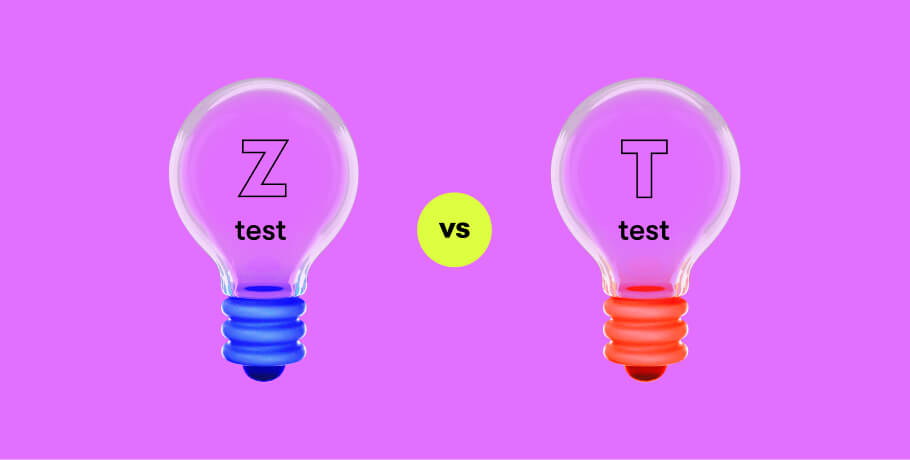Business analysis is one of those fields where you have to constantly upgrade your soft and hard skills to stay competitive. From Agile methodologies and brainstorming techniques to programming basics and software architecture – IT Business Analyst skills stretch far away.
IT Business Analyst skills: an overview
The main task of a Business Analyst (BA) is to analyze a customer's business – business model, business processes, and operations – to identify business needs, gather requirements, and come up with solutions.
A typical working day of a Business Analyst includes:
- Meetings with project stakeholders and a software development team;
- Working with analytics tools;
- Requirements engineering and documenting;
- Checking the solution feasibility and getting expert advice from developers;
- Conducting lots of research and study of best practices.
However, simply documenting requirements and connecting stakeholders with development teams isn't enough. A profound BA must be an expert in their domain (fintech, e-commerce, healthcare, etc.) and understand the software development lifecycle perfectly, so they can transform customer's ideas into features and tasks for developers.
Below, we share the list of top additional BA skills that we've collected with EPAM's business analysis experts. Dive in and get inspired!
Business Analyst soft skills you should master
1. Negotiation skills
Since a BA acts as an intermediary between a client and a software development team, excellent negotiation skills will come in handy.
To create a fruitful collaboration environment, a BA should be confident and friendly. A specialist should be familiar with the topic of the meeting, state the goals, and prepare visual materials like presentations in advance to keep everyone on the same page.
A Business Analyst also has to consider cultural differences in order not to make anyone feel uncomfortable or discriminated against.
During negotiations, a professional BA should be able to compromise on discussed topics and defend their point of view in order to build a product that'll satisfy both customers, the development team, and end-users.
2. Managing expectations
To manage customer expectations properly, a Business Analyst gathers product requirements, documents them, and turns them into scope of work. Some clients, when discussing requirements, may offer ready-made solutions or describe in detail how they see an end product. However, a BA's task is to think about requirements as business objectives and the issues that must be resolved.
In other words, to manage client expectations and build a desired product, a BA must figure out business objectives behind every desired feature and product requirement and, if needed, formulate client expectations.
3. Verbal communication and correspondence
Needless to say that verbal and written communication takes if not half of the working time, then at least its considerable part.
Here are the communication essentials every BA should master:
- Ability to express the thoughts and ideas and engage every stakeholder in a conversation;
- Conflict resolution and prevention;
- Perfect command of business etiquette and knowledge of business communication specifics.
4. Problem-solving skills
Conflicts and unexpected issues are a natural part of any project. That's when such strengths of a BA as problem-solving and conflict resolution are must-have.
A Business Analyst's task is to detect bottlenecks during software product development in the early stages, prevent conflict, or escalate them if necessary to find a resolution on a higher level.
5. Meeting facilitation
Meetings with project stakeholders and development teams are an essential part of BA's job. The Business Analyst must be able to:
- Set a meeting agenda and timing;
- Moderate a meeting, control speakers, remind them of meeting agenda and goals if necessary;
- Summarize a meeting and provide every participant with a follow-up afterwards.
6. Mentoring
A professional BA always shares their expertise with others. Mentoring of colleagues, ability to devise curricula and educational programs and organization of a learning process in the team are must-have soft skills for a BA.
Nice-to-have hard Business Analyst skills
1. Modelling
To understand a company's organization structure, operational processes, opportunities for growth, and bottlenecks, Business Analysts use various modelling techniques. To be seen as competent in modelling, a BA should be able to create:
- Business process models;
- Entity-Relationship (ER) diagrams;
- Statechart diagrams;
- Block-schemes and algorithms;
- Sequence diagrams;
- Class diagrams;
- Activity diagrams;
- Data-flow diagrams (DFD);
- Domain vocabularies: taxonomy and ontology.
2. Technology stacks
Since one of the BA's responsibilities is to formulate a project's scope, it's useful to be acquainted with the technology stack used in the project, learn about the pros and cons. Finally, it's nice to have some knowledge about certain technologies and justify the choice to the developers' team.
3. Programming basics
Knowing the basics of programming, testing, and algorithmization is helpful for BAs as it lets them offer more competent technical solutions, allows to see a broader picture of a system, notice functionality inconsistencies, and prevent redundant features.
To keep up with a development team and communicate thoughts clearly, it’s useful for a Business Analyst to master:
- Basic programming concepts;
- Writing of simple scripts;
- Knowledge of one of the programming languages like Python, R, and Kotlin;
- Basics of object-oriented programming;
- BDD, TDD, and unit testing basics;
- Web technologies basics.
4. Software architecture and design
Knowledge of typical architecture solutions, their advantages and drawbacks provides BAs with independence in technical decisions, helps communicate the architectural goals clearly, and enables them to resolve issues during technical implementation of the project.
Moreover, a well-documented architecture helps approve changes with a client, discuss those changes with a development team, and compare various available options.
Here's the list of typical architecture solutions that stands a BA in good stead:
- Service-oriented architecture;
- Client-server architecture;
- Peer-to-peer;
- Onion architecture;
- Data buses;
- Cloud computing;
- SaaS, PaaS, IaaS.
Additionally, a BA should be able to describe the enterprise architecture, use basic frameworks and enterprise architecture standards (TOGAF, Zachman, FEAF, and Gartner), and be familiar with mechanisms of systems integration.
5. Database management systems
Another useful technical skill for a BA is the basics of database design and SQL to write simple requests. For middle and senior-level Business Analysts the bar is higher. They should be able to design complex databases (with segmentation, clusterization, distributed data storage, etc.) and write complex requests and procedures in SQL.
It's great to know the peculiarities of database management systems (DBMS) like MS SQL, DB2, Oracle, Postgres, MongoDB, OrientDB, and MySQL; administrate a respective DBMS, and design a document-oriented database.
To optimize the performance of an IT infrastructure, BAs need to operate normalization and denormalization concepts and understand their consequences.
6. Software testing
Quite often, Business Analysts start their careers by switching from quality assurance. Thus, they get a competitive advantage among other BAs. Ex-QAs that switched to business analysis are aware of the inner workings of the software development process, know the basics of programming, and distinguish well-written requirements from poorly written ones.
Whether a BA already has a quality assurance background or not, it's great to know and apply the following:
- Basics of software testing – types, domains of application, and the main artifacts
- Functional testing
- Testing automation;
- Acceptance testing
- ISO2500 specific;
- Requirements testing
7. Interface design
A skillful BA is also a bit of a UX designer. UX skills help BAs find a compromise between client's requests, designer's solutions that might not correlate with business goals, and end-users demands. Moreover, knowledge of interface design basics, principles of user-centered design and task center design, and creation of simple prototypes help Business Analysts communicate with UX designers and find the most relevant solutions.
8. Business intelligence
Business intelligence (BI) is another useful skill for a BA that helps transform insights derived from the market an organization operates in and the data on internal organization's state.
For starters, BAs learn a data lifecycle from the system source to an end display in BI systems, online analytical processing (OLAP), simple MDX requests, common data storage schemes, and mechanisms of data updates in such storages.
Common BI tools that help BAs design data storages, build integration mechanisms, and apply different protocols of data exchange include SSAS, SSRS, SSIS, Oracle BI, Tableau, and Qlikview.
To recap
As you can see, a skillful Business Analyst is a T-shaped specialist, who, besides their core knowledge, should possess some extra technology-related skills to stay competitive in the job market and be in demand. Here at EPAM Anywhere, we encourage versatile professional growth and offer endless learning opportunities and career development options - with no limits. That's why we're always looking for people whose values coincide with ours. Join us to learn and boost your career!

As Chief Editor, Darya works with our top technical and career experts at EPAM Anywhere to share their insights with our global audience. With 12+ years in digital communications, she’s happy to help job seekers make the best of remote work opportunities and build a fulfilling career in tech.
As Chief Editor, Darya works with our top technical and career experts at EPAM Anywhere to share their insights with our global audience. With 12+ years in digital communications, she’s happy to help job seekers make the best of remote work opportunities and build a fulfilling career in tech.
Explore our Editorial Policy to learn more about our standards for content creation.
read more




















